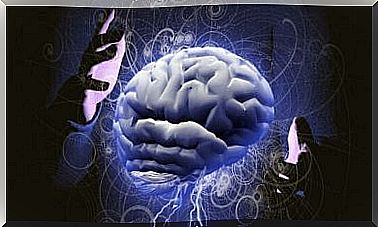Listening Without Empathy: Emotional Disconnection

Listening without empathy is like looking without seeing. It is nodding your head even though your mind is disconnected from what is going on around you. It’s to be there, but not really. Communication and empathetic listening are important for building strong and meaningful relationships. They let you connect with other people’s feelings.
A while ago, Paul Bloom – a psychologist and cognitive researcher at Yale University – made some controversial comments about empathy. According to him, there is nothing positive about it. According to Paul Bloom , falsehood is often what lies behind empathy. For example, a person may feel empathy for what another person is saying, even though he does not really care.
Basically, he refers to the fact that everyone, in some way, can put themselves in other people’s shoes. However, this does not mean that they actually care about what the others are going through. This is basically what “listening without empathy” is.
Therefore, he believes that there is no point in having empathy if you do not have a proactive attitude. To be truly empathetic, we must be authentically aware of the person in front of us and his or her story.
Furthermore, Paul Bloom points out that sometimes there are people who seem empathetic, but who do nothing to help others. They only show empathy to feel good about themselves. Therefore, it is not enough to just be there and to feel and show that we understand the other person’s reality. We must actively manifest this feeling – the connection we create with it.
People tend to ritualize their daily interactions to such an extent that it becomes impossible for them to perceive the lack of emotional connection that exists within their relationships with others.
A very characteristic example of this is the mothers and fathers who almost automatically answer their children when they explain something to them. There comes a point when phrases like “Yes, your drawing is nice” and “Really? It was interesting ”become meaningless because they are repeated so often.
Some parents think that their children do not realize that they are just trying to squeeze out a quick response so that they can continue with their activities, but they notice this to a very high degree.
That does not mean we do not love our children with all our heart. This means that our busy lives disrupt our relationships. Parents who have hectic schedules always think about their possibilities and tend to listen without empathy.

We’ve probably all talked to someone who was not really there. There are times when we want a genuine conversation with a person, but he or she just nods because he or she is not really listening. It is as if there is no emotional connection, but only an empty conversation.
Other times we get answers that are not helpful at all. Here are some examples of these types of answers:
- Advisory answer: what you should do is to…
- Empathetic personal answers: you are exaggerating too much, there is nothing wrong with that!
- Correct answer: you are wrong.
- Interrogative answer: but why do you think he said so?
- Avoidant answer: I understand that you are worried, but I can not help you now because…
As you can see, these types of answers are clear examples of people listening without empathy, which can make us feel bad.
We can all become empathetic. Dr. Anthony David from the Institute of Psychiatry, Psychology & Neuroscience in London actually conducted a study that showed that it is possible to measure empathy.
This has made the world realize that everyone is capable of empathy. However, people also lack the willpower to improve their social skills. This means that although we are empathetic, we do not use empathy as effectively as we should.
As a consequence, listening without empathy has become quite normal. We think of ourselves as comprehensive, patient and caring when in reality we are not empathetic towards others.
To improve, it is important to keep the following keys in mind:

- To develop empathy, we must learn how to truly be present, without urgency or excuse.
- Eye contact is key. We must look the other person in the eye without judging him. We must learn to convey affection and understanding with our eyes.
- Furthermore , we need to know how to respond. Criticisms, judgments or phrases such as “I should have done this” or “You should not have done this” are not at all helpful.
- Above all, empathy must be proactive. Those who say they understand but do nothing to help only give others false hope. Telling someone that they are valuable and then neglecting them can really hurt the person.
In conclusion, we should not assume that we are experts in this field. We always have things to learn and get better at. Slowly but surely we can improve our empathy, and it can lead to better, more genuine relationships.








